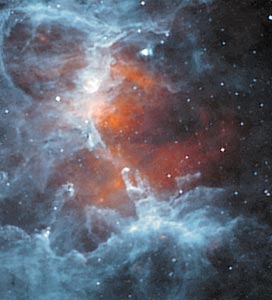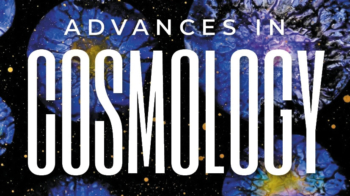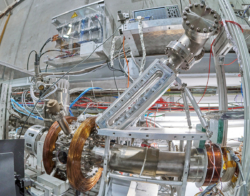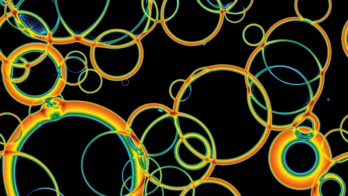
Given the apparent absence of antimatter at the cosmic scale, it might seem strange that a recent paper from the ASACUSA collaboration on quantum tunneling effects in collisions between antiprotonic helium atoms and H2 and D2 molecules may be relevant to astrophysics. This is because antiprotonic helium consists of a one-electron “cloud” surrounding a composite, singly charged “nucleus” made up of an alpha particle (two positive charges) and an antiproton (one negative charge), so that it looks rather like a hydrogen atom.
No data exist on the reactions between H and D atoms and their molecules H2 and D2 at the low temperatures, around 30 K, that are characteristic of cold interstellar clouds and cold pre-stellar cores. These are exactly the astrophysical environments where more complex molecules may eventually be formed. For example, in certain regions the abundances of molecules such as H2O, H2S, CH3OH and C2H5OH are so enhanced that surface ice chemistry must be occurring, while the reactants remain in close proximity to one another for 105 years or more!
However, such reactions may not take place at all at these temperatures without tunnelling effects, so anything that provides a greater understanding of quantum tunnelling at low temperatures is of importance in answering the outstanding questions about ice chemistry. This is where the data from the ASACUSA experiment, reported in the paper “Quantum tunnelling effects revealed in collisions of antiprotonic helium with hydrogenic molecules at low temperatures” (Juhasz et al. 2003), may play an important role. The ASACUSA results provide a promising benchmark for theoretical models of such collisions, which could be generalized to more complex systems and may lead to a better understanding of astrophysical ice chemistry.
Further reading
B Juhasz et al. 2003 Chem. Phys. Lett. 379 91.





